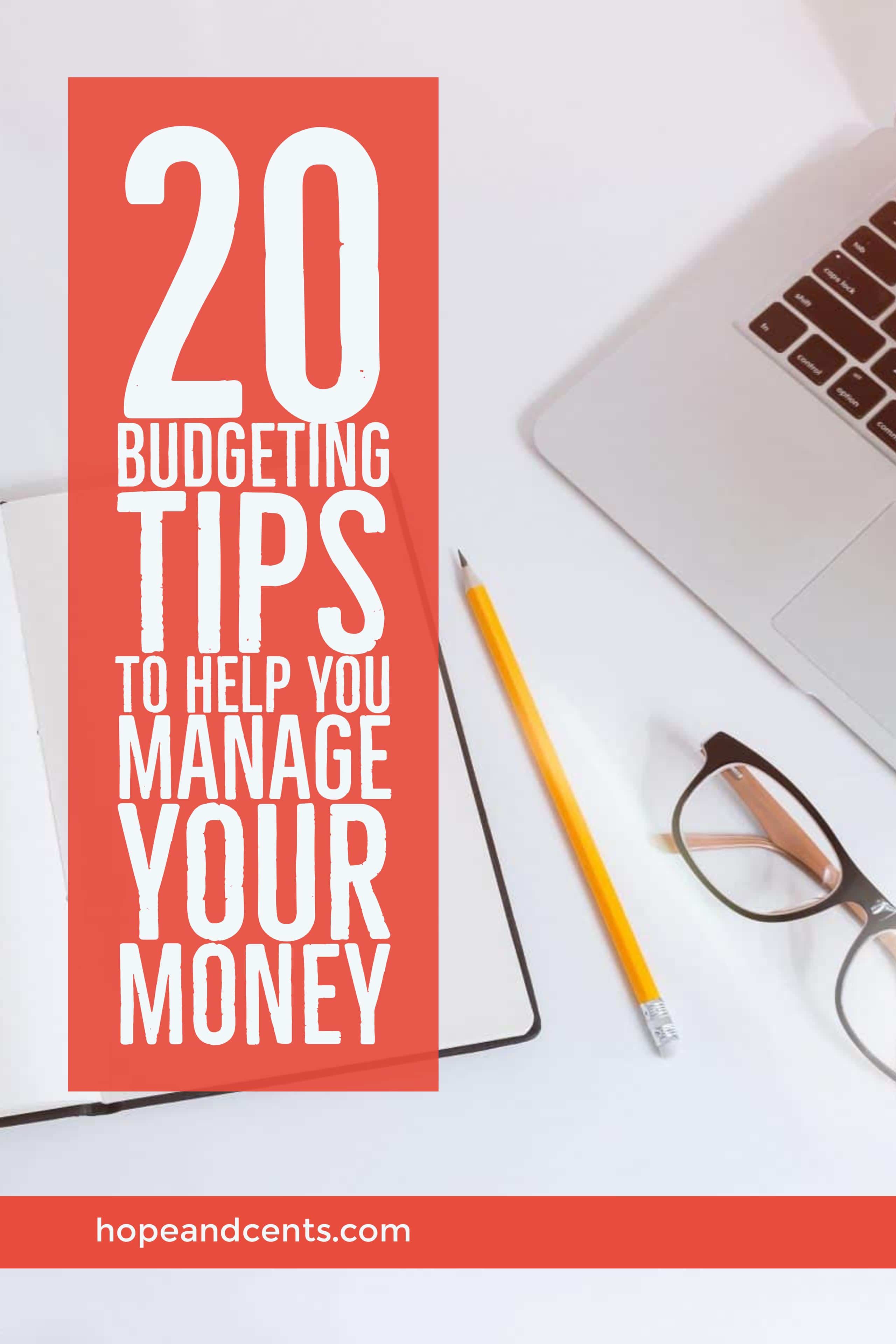20 Budgeting Tips to Help You Manage Your Money
20 Budgeting Tips to Help You Manage Your Money
It can be a constant struggle to keep your spending in check. If it weren’t, we would all be walking around with overflowing savings accounts. The key to managing your spending is to constantly work on it.
Keep tweaking your money-saving strategies and your approach to handling your cash-flow with these quick budgeting tips.
1. Write Your Budget Down
Your budget will never work if it’s floating around in your head. Give it a chance to work by committing it to paper (or spreadsheet or app).
2. Work on Your Budget Before the Month Begins
It’s hard to plan your monthly income if you’ve already spent a portion of it. Make a habit of completing your budget before you receive the first paycheck of the month.
3. Do a New Budget Every Month
No two months are the same. Each month has it’s own social events, activities, obligations, and income.
4. Married Couples, Work on your Budget Together
The budget is not likely to work unless you both participate in creating it.
5. Singles, Show Your Budget to an Accountability Partner
Checking in with a trusted friend, family member, or financial coach can help you keep things in line.
6. Put “Pocket Money” in the Budget
Cut out the guilt of making small impulse purchases by planning for them.
7. Have a Miscellaneous Category
You will forget to plan for some expenses, and others will come up. Having this category will help you address them without derailing the budget.
8. Use Cash
Ditching the credit and debit cards when it comes to flexible spending categories like groceries, entertainment, clothing, and pocket money will help you stick to the budget.
9. Use Envelopes or Binder Clip for Each Cash Category
Put your cash in envelopes or simply use a binder clip with a post-it note to label each category.
10. Go Back to the Budget When Unplanned Expenses Pop Up
If the miscellaneous category cannot take care of the cost, you have three options: Say no the expense, delay it until you can fit it in the budget, or adjust the budget by reducing other categories.
11. Find the Right Budgeting Method for You
Explore different ways of budgeting including paper and pencil, spreadsheet, or apps until you find the right one for you.
12. Make Budgeting Fun
Eliminate the drudgery that’s associated with budgeting by playing music, having snacks and drinks, and choosing a comfortable place to work on it.
13. Designate a Time Each Month to Work on the Budget
Choose a specific day and time to do the budget (e.g., the last Sunday evening of each month) and try to stick to it as much as possible.
14. Jot Down Upcoming Expenses Throughout the Month
Keep a running note or memo in your phone of doctor’s appointment, parties, activities, etc., coming up in the next month to reduce the number of expenses that “pop up.”
15. If You’re New to Budgeting, Give Yourself Time
Allow three months or so to pass before you feel like you have the hang of budgeting. Each month will get a little easier.
16. Track Your Expenses
If you are budgeting for the first time, track your expenses for three months or so to see how you need to adjust your budgeting.
17. Be Realistic
Many budgets fail because they simply are not realistic. You have to eat and do other necessary things, so make sure you’re putting enough in the budget to cover them.
18. Put Fun Stuff in the Budget
Debunk the myth that living on a budget means no fun. Plan for entertainment, vacations, and other enjoyable activities.
19. Don’t Give Up
If you overspend, don’t freak out and decide budgeting doesn’t work. Tweak your budget until it works.
20. Keep It Simple
Whatever method you use to budget and track your expenses, make sure it is simple and understandable, or you won’t stick with it.
Related Reading
• 8 Tricks to Help You Save More Money
• How to Budget When You Live Paycheck to Paycheck
• 3 Problems a Budget Can’t Fix…But You Can
Whether you’re new to budgeting or you’ve been doing it for years, remember that your budget is not something you can set and forget. Be flexible and willing to adjust your approach.
Use these budgeting tips to help make your budget a success or to kick your existing budget up a notch. Stay committed to the process of budgeting, and it will work wonders in managing your money!



0 Comments